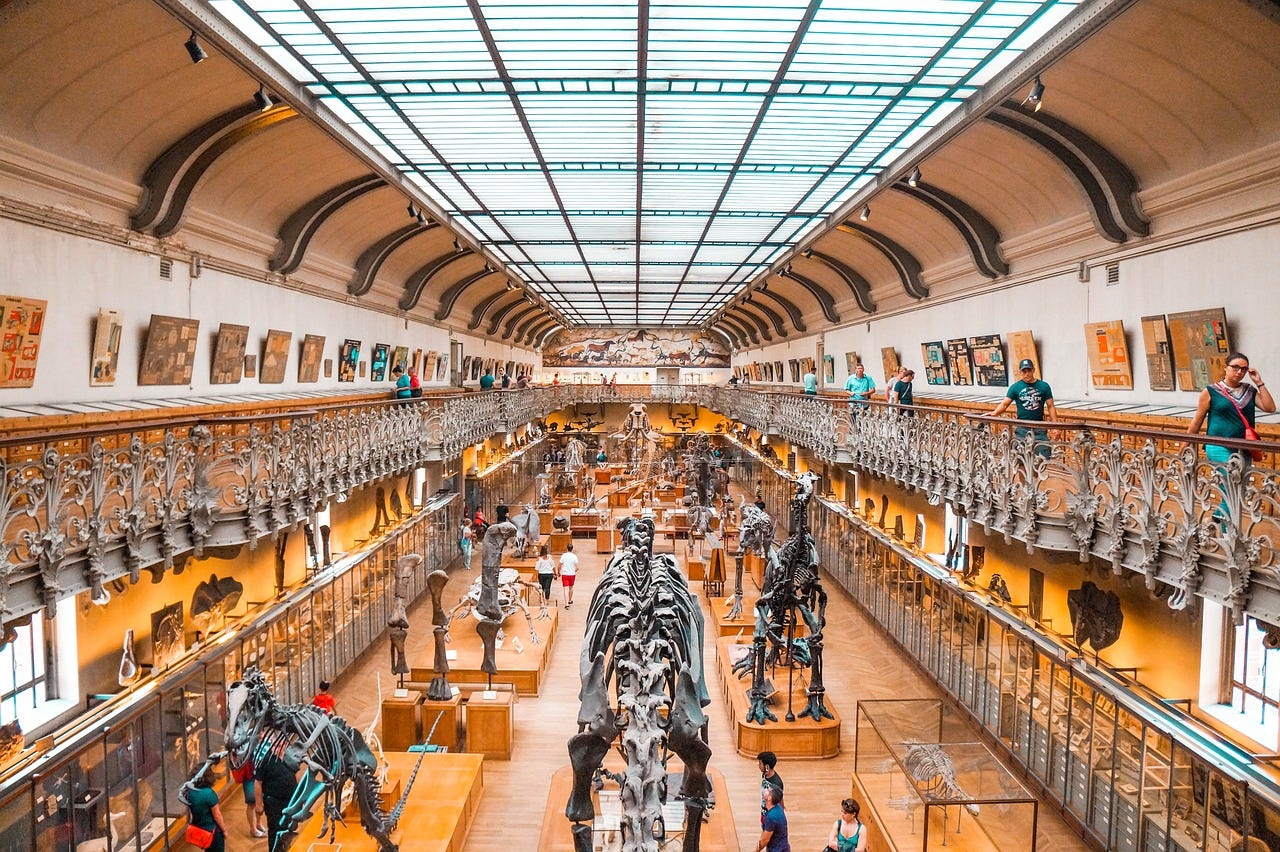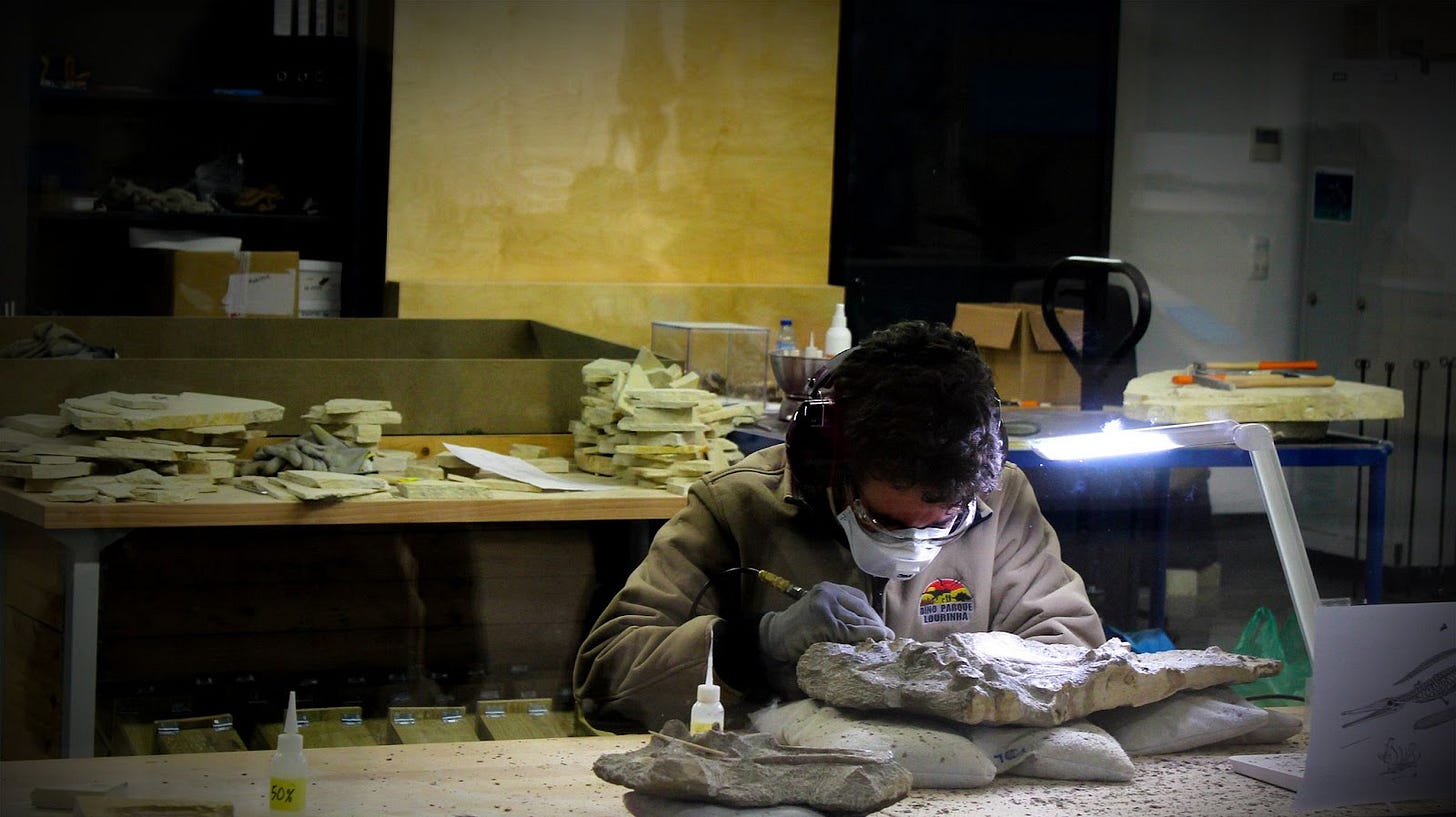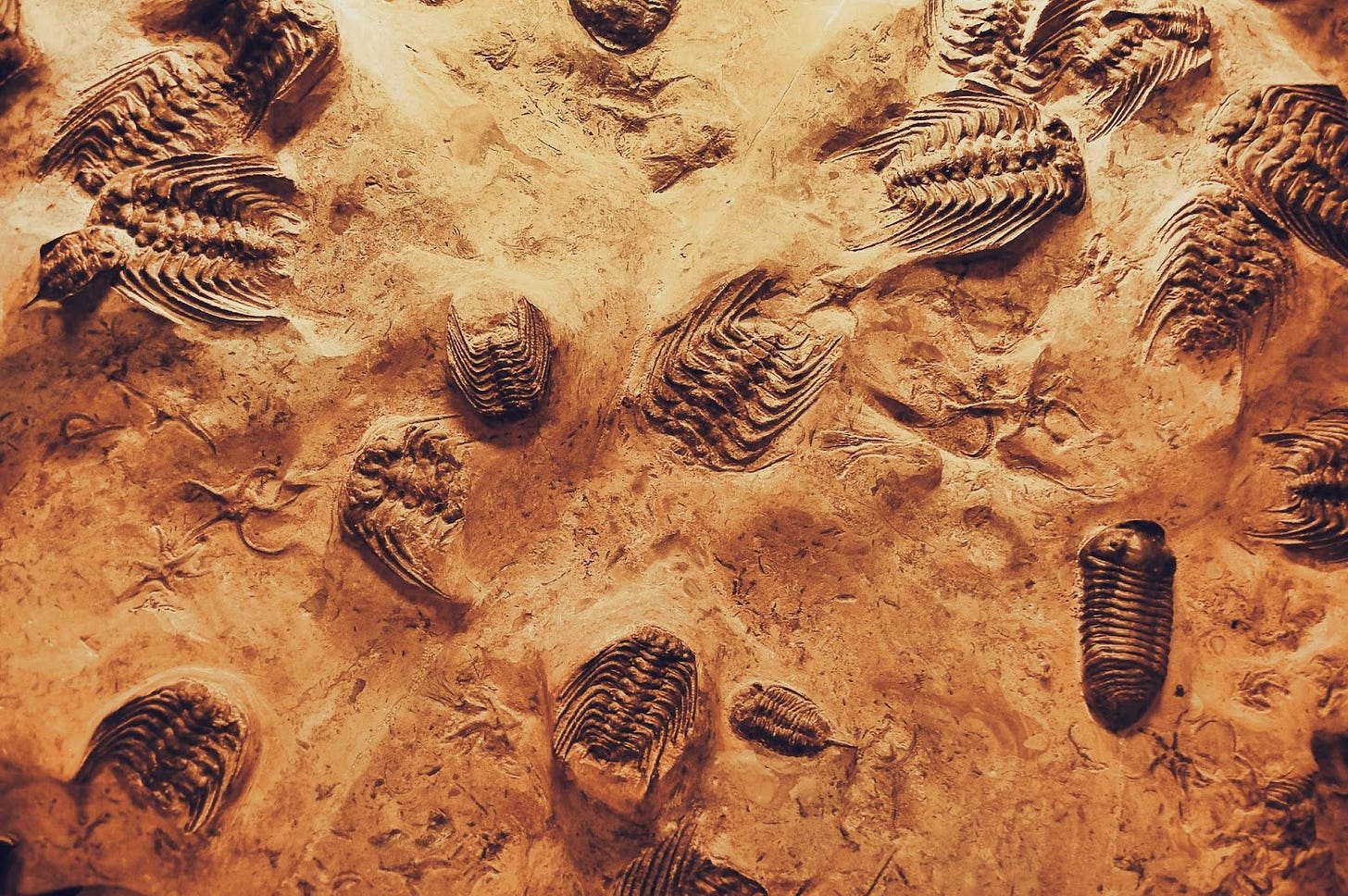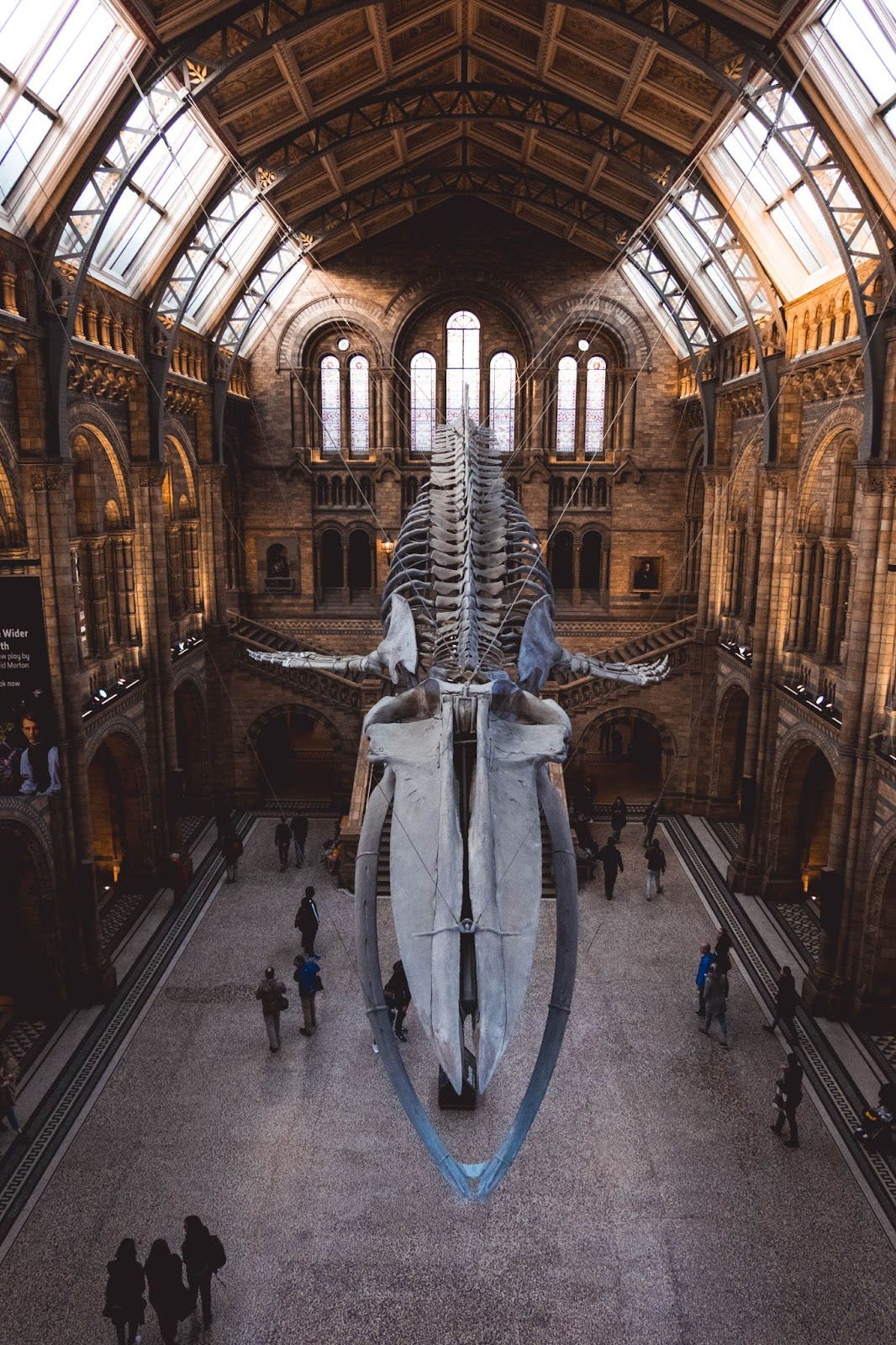The Paleontology field suffers from “parachute science,” otherwise known as scientific colonialism. This term describes the practice of researchers with higher-to-medium incomes traveling to lower-income nations to gather and examine fossils, neglecting to collaborate and communicate with local experts. This practice has encouraged illegal exporting of artifacts, whether from large, well-funded museums, higher-income collectors, or hobby-driven billionaires.
Dinosaur Fossil Museum taken from Pixabay.
As a result, early-career-scientists have become discouraged from pursuing the field. The ongoing corruption in communities near fossil beds has created a hostile culture, as foreign researchers have already established dominance over these heavily frequented fossil deposits, continuing to leave minimal opportunities for local scientists.
It's crucial to recognize that extracting fossils from their geological surroundings strips away a portion of their historical context. It's analogous to taking an elephant fossil and sending it to scientists in Kansas for examination. Without pertinent local knowledge, these scientists may struggle to decode certain mysteries held within the fossils, including the lifestyles of these creatures and the environmental conditions they experienced.
Paleontologist working on a Ichthyosaur fossil in Lourina, Portugal. Image from Stockvault.
Furthermore, out of 26,000 total fossil publications, over 97% of these publications come from higher-income countries. Moreover, the fossils forming the basis of these publications were not unearthed in these regions. The United States, notably, is responsible for most of these.
The countries suffering the most have been the Dominican Republic, Myanmar, and Namibia. In particular, Myanmar has gained renown for its insects, plants, and reptiles, fossilized in amber. These findings can be exported legally, as they considered to be gemstones, which creates a challenge for researchers, as they are constantly being bought and sold privately.1
Image by Alejandro Quintanar from Pexels.
Paleontology, for a long time, was considered a conquest culture. A phrase encompassing the idea that the earth deserves exploring by anyone who wishes to do so or has the means to. The desire for exploration has increased our knowledge of the Earth, and has led to the knowledge about places such as the extensive Congo Rainforest, the marvels of the Egyptian Pyramids, and the depths of the Grand Canyon.
However, exploration has constantly been marred by ethical concerns, notably with figures such as Columbus and the Lewis and Clark, where our quest for knowledge came at the expense of others. The term 'parachute science' has surfaced as an alarm within many fields, and many have raised their standards to foster a more inclusive and hospitable scientific community. Regrettably, paleontology has lagged in this regard. While exploration should remain highly regarded, the imperative for ethical conduct must be underscored to ensure that colonialism in all its forms and across all fields, can be left in history.
Hope, the Blue Whale, is kept in the London Natural History Museum. Photo taken by Gashif Rheza from Pexels.
What actions should we take to ensure this?
Journals can initiate improvements by elevating the standards for fossil information and demanding detailed records of the custody chain. In response, funders can mandate that researchers collaborate effectively with local scientists for them to receive proper acknowledgment. The various governments in these areas can enforce these laws, and foreign researchers can mutually hold each other responsible for their own scientific endeavors.
Paleontology has and will continue to benefit from regulation and enforcement. In private collections, researchers have to depend on the goodwill of billionaires for access. Through effective regulation, local museums reap the rewards, thereby enhancing the well-being of local communities. These regulations guarantee that fossils remain in their rightful place and that local scientists earn due credit.
It is essential to delve into the study of our planet, for “the past holds the power to shape the present,” a principle recognized across all fields of study. However, it is more important to create a precedent with firm expectations for the future. Ultimately, creating an inviting and inclusive community for everyone to enjoy.
A future that should be the aspiration of us all.
Thompson, H. (2023, June 23). How “parachute science” in paleontology plays out in 3 countries. Science News. https://www.sciencenews.org/article/parachute-paleontology-science-colonialism-fossils











Great article Alexus!
Wow! Such an interesting article, never thought about this till now!!